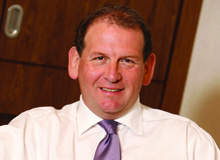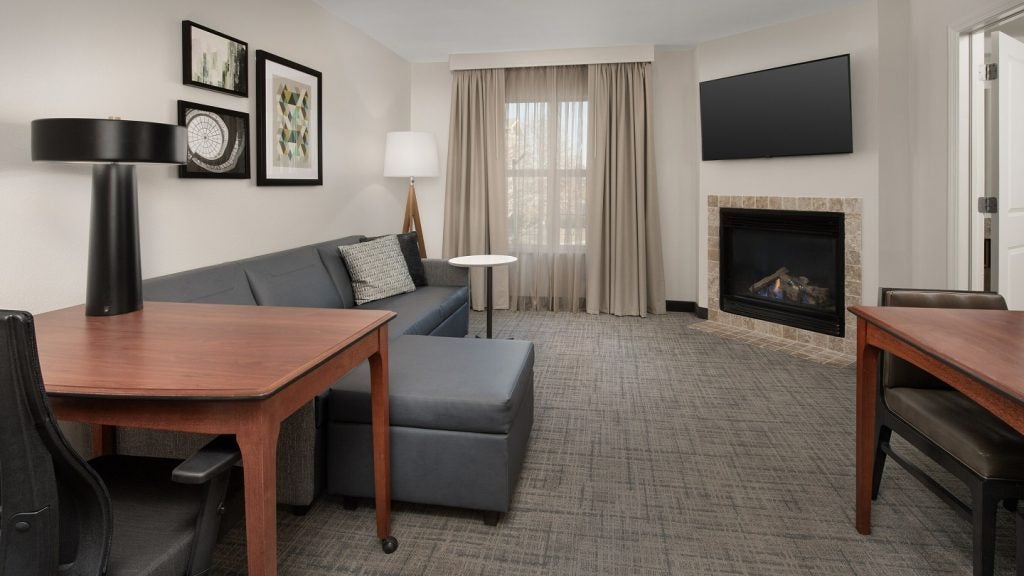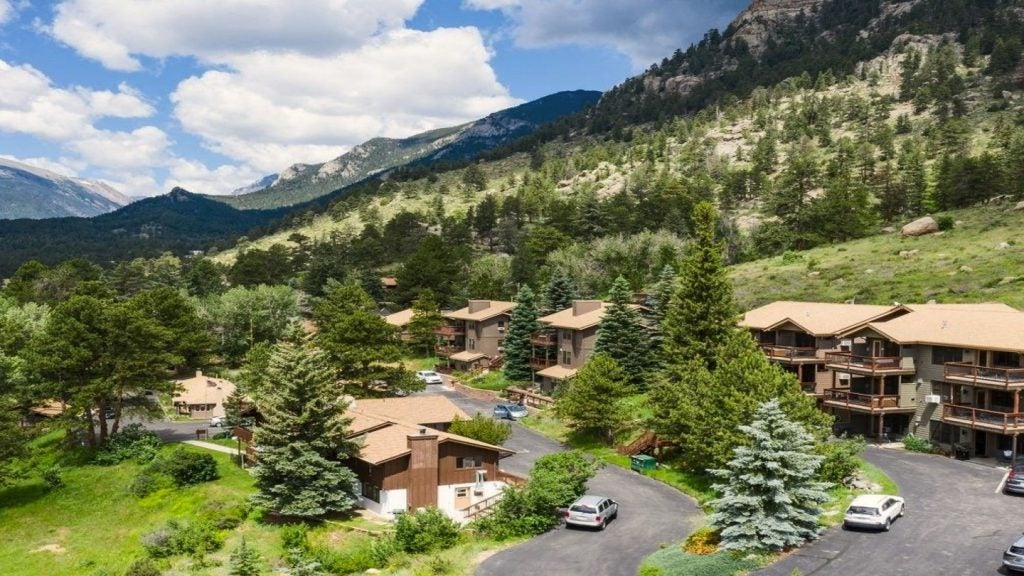
Phin Foster: Despite the disappearance of the business traveller, we saw the leisure market account for more rooms in 2009 than in the previous 12 months. What do you read into that?
Andy Cosslett: We measure demand through the number of room nights we sell. On a global basis, this dropped by 3% overall in 2009, which is not that much in the context of the global RevPAR declines that we experienced. But what’s really interesting is that leisure demand has actually grown. Of course, some of this is driven by the availability of lower rates, but we think there’s more to it than that. The continuing growth in leisure travel through the recession tells us that the role of travel in people’s lives is changing. It now seems that in the hierarchy of needs, travel is becoming less of a discretionary spend item and more often one of life’s essentials. This underlying strength in demand from the leisure sector should ensure a solid platform for the industry in the years to come. In the short term, occupancy has now stabilised, but rate remains under pressure. We expect this situation to improve slowly, but only as business travellers return in greater numbers throughout 2010.
What are the dangers of deep discounting as rates remain pressurised, and how can this be avoided?
Initially occupancy fell, while rates held up. But occupancy levels were suppressed for a considerable time and hotels had to look at not only rates but overall value to encourage people to stay. Dropping rates alone is not the most effective way to stimulate demand. What we saw all the big hotel companies do over the last year is focus on value and increase the number and the appeal of their promotions. This has worked well for us, particularly when focused on our most loyal customers – the 48 million members of our loyalty programme, Priority Club Rewards.
System delivery is paramount for hotel owners and one of the primary reasons why they would choose one of our brands. We’ve been focused on using the full power of our system, making the most of our reservations centres, websites, sales teams and marketing expertise. And the result is that we now deliver 68% of rooms revenue to our hotels. On top of that, we’re growing our market share and outperforming our competitors.
See Also:
How much harder do you think IHG would have been hit by the downturn if you had not embarked on an asset light strategy back in 2003?
How well do you really know your competitors?
Access the most comprehensive Company Profiles on the market, powered by GlobalData. Save hours of research. Gain competitive edge.

Thank you!
Your download email will arrive shortly
Not ready to buy yet? Download a free sample
We are confident about the unique quality of our Company Profiles. However, we want you to make the most beneficial decision for your business, so we offer a free sample that you can download by submitting the below form
By GlobalDataThe actions we’ve taken in 2009 build on the changes we’ve been making over the last five years to turn IHG into an asset light, high performance fee-based business.
Over the last 18 months the power and resilience of our business model has been thoroughly tested. And I believe it has passed the test. We’ve proven that our scale, and the strength of our brands, can lead us to gain market share and bring operational efficiencies whatever the market conditions.
So you’re well positioned to take full advantage when the market does finally pick up?
Yes, definitely. As well as focusing on becoming an asset light feebased business, we’ve grown our system size year on year and we now have the largest development pipeline in the industry. We’ve done that at the same time as improving the quality of our hotels and making great strides with all our brands. The $1 billion Holiday Inn relaunch is just one example. This work has all been done in partnership with our hotels owners. This partnership really came into its own during the downturn, as we have worked closer than ever before to improve hotel returns, reduce costs and create value. We’ve made some fantastic headway over the last few years and with the momentum we’ve built, and the whole company behind us, I’m confident we’re in the right place to take full advantage of the upturn when it comes.
And the Holiday Inn project was never in danger despite the financial climate?
The downturn might seem like a great reason to back away from making such big changes, but big brands do big things and this is about as big as they come. We set about relaunching Holiday Inn in 2007. Although no one could have predicted the economic circumstances we’ve all faced over the past year and a half, we’ve pushed on with this $1 billion programme because we believe it’s exactly the right time to be doing it. The relaunch is all about re-setting people’s perceptions of Holiday Inn. In their search for great value they’re giving the brand another go and liking what they find. Guest satisfaction is up and we’re seeing a RevPAR premium. That’s something our owners are very keen to make the most of during the downturn. We’ve now relaunched over 2,000 hotels and are on track to complete the programme by the end of 2010. This programme, the biggest relaunch in hospitality history, is overhauling the quality of our estate – by the end of the year, 40% of Holiday Inn hotels will be less than ten years old. That’s really going to help our brand stand out from the crowd and puts us in a great position for the future.
The midscale segment, which often offers the best value for money, is going to continue to grow. The long-term trends also point to the continued development of this part of the market – just look at the way low-cost airlines have gone from strength to strength.
With 70% of operating profits coming from a still struggling US market, how much of a priority is further geographical diversification?
We have over 4,400 hotels across more than 100 countries and territories around the world, so we’re very diverse already. The US is a big market for us and will continue to be, but we hold leadership positions in the six largest hotel markets in the world – more than any other hotel company. One of our biggest growth engines is China. We first entered the market in 1984 with the Holiday Inn Lido Beijing. Just 25 years later we have 125 hotels open there, generating total gross revenues of over $1 billion a year. We have a further 138 hotels in our development pipeline, 40 of which will open in 2010, including eight InterContinentals and our first Hotel Indigo in the region, in Shanghai. This year we also have the Shanghai Expo to look forward to. The Chinese Government states that over 70 million visitors are expected between May and October and we have 19 hotels in the city for guests to choose from. There are big opportunities in China and across Asia Pacific and we believe that is where the recovery will be led from.
You’ve said that Indigo represents a significant new industry trend: can you expand on this thought for me?
An increasing number of guests are looking for hotels that are more individual and in keeping with their environment. Hotel Indigo helps fill that gap in the market and we now have 53 hotels in the development pipeline. Hotel Indigo is our boutique brand, launched just over five years ago in the States. It gives people the choice of a stylish, design-led hotel, something a little bit different from the norm, but with the backing of a big hotel company, including the convenient booking channels and leading loyalty programme. At the beginning of 2009 we launched our first non-US Hotel Indigo in London, and, as I mentioned, this year we’ll be opening in China. What’s interesting about Hotel Indigo right now are the conversion opportunities. The brand is very well suited to conversions. A building that has been repurposed can often help bring the local setting and culture to life, far more than a new build. For some owners, cash is tight right now so converting an existing building, which can be cheaper and quicker to do, is a good option.
So do you think that a new guest demographic has emerged from the downturn?
The overriding change we’ve seen recently is the quest for value, but this isn’t specific to any one type of guest. For corporate customers, value has meant a change in the way business travel is procured. With large corporations looking to make the most of their purchasing power and get the best price, corporate rates are now under constant negotiation. Savvy procurement departments are reviewing their rates more frequently, so it’s quite possible that the downturn will have changed the way we win corporate accounts for good. With the increase in the number of promotions and deals to be had, the leisure traveller has been able to trade up. Guests staying with us on holiday have generally not reduced their budgets. Instead they have been searching around to get the most for their money. Previously, their $150 a night may have got them a room at a Holiday Inn. Now, they can also find deals that get them a room at the Crowne Plaza. Not only that, they’re also looking for add-ons: breakfast included, for example, or more value from their points in the loyalty scheme. Customer loyalty has always been important for any brand, but during the downturn our loyal customers have been the most resilient group of travellers. Six million people joined Priority Club Rewards in 2009. These guests will still look to get the best value they can for their money, but they will consider us first. And if we can offer them the right reward they will stay with us over another competitor.







